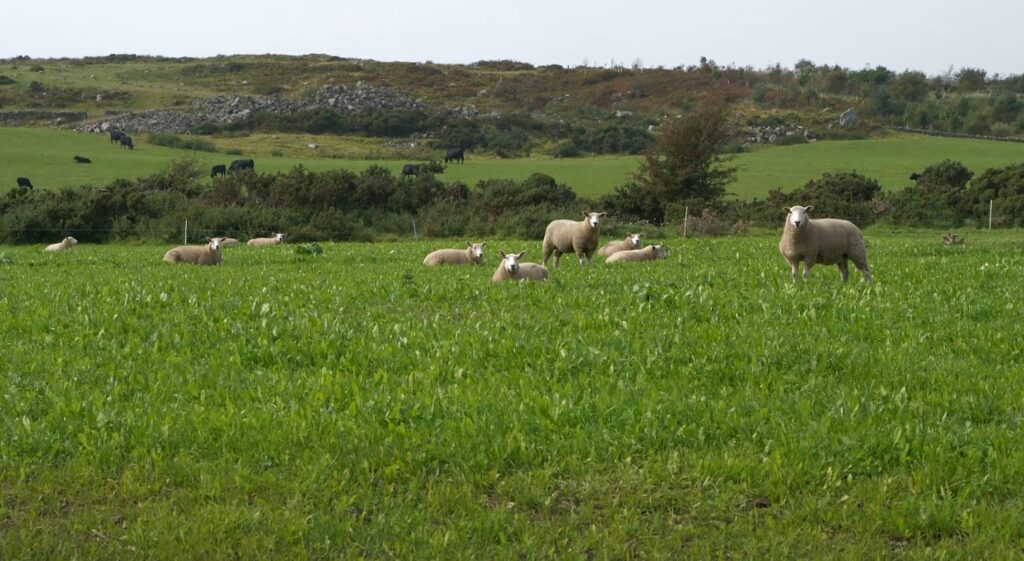Holistic Management: Part 4 – Holistic Planning
2 April 2024This is the final of a four-part series exploring holistic grassland management. The other articles in this series cover an introduction to Holistic Management the Holistic Decision Making Framework, and Holistic Context.
In the final part of this series we’ll take a look at the four Holistic Planning and Monitoring Procedures. Allan Savory states that, when these procedures are used alongside the Holistic Decision Making Framework, land managers can regenerate land, improve productivity, increase profitability and improve the quality of life of those who rely on the resources managed.
Managing The Feedback Loop
Key to Holistic Planning, in addition to referring back to your Context, is the Feedback Loop shown below, to ensure through monitoring and replanning that plans and actions are not deviating from the goal or objective with the action.
The Feedback Loop: Savory Institute

Whilst, defining your whole and holistic context can be for anyone or any entity, be that an individual, a family, a farm or a company unrelated to agriculture, the four main Holistic Planning and Monitoring procedures are developed to be specifically applicable to agriculture and land management.
Holistic Financial Planning
Good financial management is essential for any business that seeks to be viable and profitable. This is a simple, easy to use cash based financial planning process which starts by firstly reviewing the current years plan, then forward budgeting focusing first on the income and profit required before planning expenses.
Two key elements of the planning process are enterprise specific budgeting to ensure that each enterprise is contributing and there is not a weak link (often neglected) and checking for context alignment to ensure that social and environmental goals are met alongside financial.
Holistic Planned Grazing, Land Planning, and Ecological Monitoring
Holistic Planned Grazing is a procedure for planning the livestock grazing strategy, moves and paddocks, including the use of a grazing chart, to restore degraded land to health, grow more grass and promote livestock productivity whilst integrating crop, wildlife and other land uses.
Holistic Land Planning is a framework to effectively and economically plan the infrastructure required on that land for livestock to effectively graze. It can also be used for arable cropping.
Holistic Ecological Monitoring has three parts:
- Monitor the four ecosystem processes (water cycle, mineral cycle, energy flow and community dynamics).
- Monitor livestock growth rates, water supplies and unfavourable grazing patterns.
- Monitor your management when trying something new to understand its effects quickly on points 1 and 2. By monitoring we can have an early warning sign that something is wrong.
Whilst the merits of Holistic Planned Grazing in reference to grazing pasture covers much taller and with greater rest periods than conventional grazing systems these approaches are up for debate for many Scottish farms. This is because of potential production impacts and the fact that, in a non-brittle environment, desertification is not an issue. It is clear to me in review that the Holistic Management Framework, defining your Whole Under Management and Holistic Context as well as the Holistic Planning processes could have considerable value for individuals and farm businesses open to trying them.
In particular, defining your Whole Under Management, the resources and people available and that your decision making will impact, and your Holistic Context, your desired quality of life, what you want your future resource base to look like and a statement of purpose has real benefits for the user as by referring back to these during decision making this ensures that all social, environmental, and economic factors are taken into account. That on a quest to produce often more output we don’t lose sight of true profitability or take actions that are socially (eg. work life balance for you, your family and staff) or environmentally detrimental.
A free introductory eBook, The Foundations of Holistic Management, is available through the Savory Institute website for those who would like to learn more: Savory Institute - Free eBook
Author: Daniel Stout, SAC Sheep and Grassland Specialist
Sign up to the FAS newsletter
Receive updates on news, events and publications from Scotland’s Farm Advisory Service

